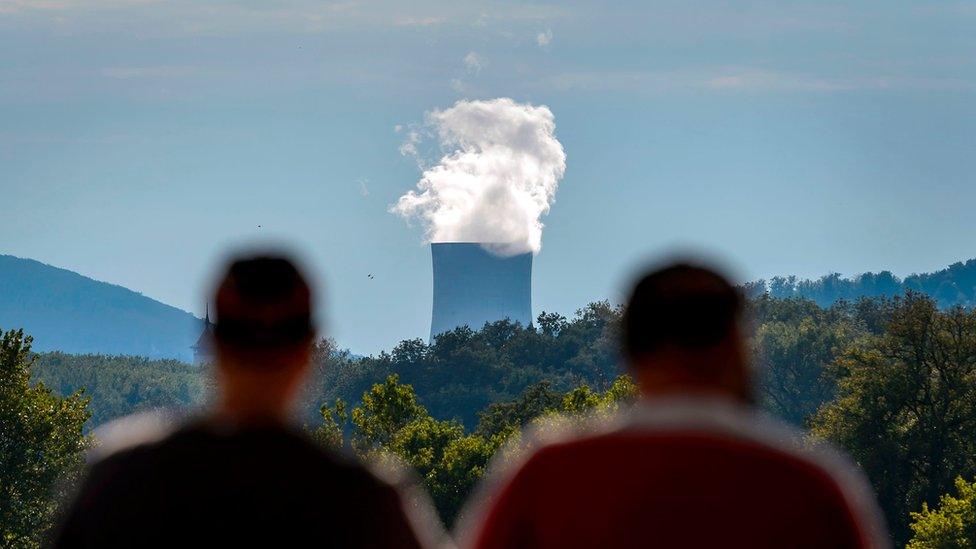Switzerland election: Green parties make landmark gains
- Published
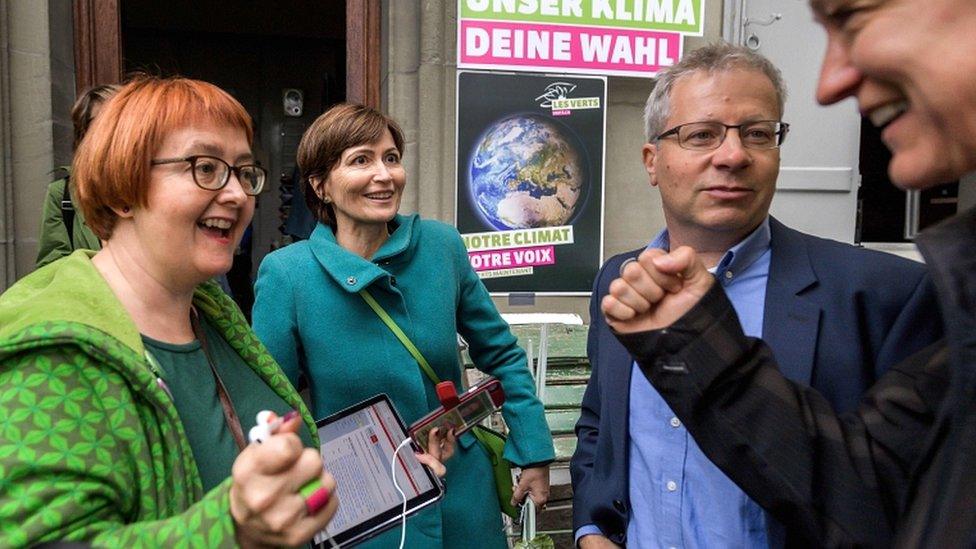
Green parties' gains have given them significant influence in Swiss politics
Green parties made strong gains in Switzerland's parliamentary election, though the anti-immigration Swiss People's Party (SVP) came top.
Final results showed the Green Party (GPS) surging into fourth place, with 28 seats in the 200-seat lower house.
The Green Liberals (GLP) got 16 seats. The two green parties took more than 20% of the vote.
Their gains reflect voters' concerns over climate change, seen as the dominant issue in Sunday's election.
The Green Party overtook one of the parties in the coalition government, the Christian Democrats (CVP), and could for the first time get a seat in the coalition that governs Switzerland.
"It is not a green wave, it is a tsunami, a hurricane," deputy party leader Celina Vara told Swiss radio.
The SVP won, getting 53 seats - but that is 12 fewer than it had in the outgoing National Council (lower house).
The centre-left Socialists came second, winning 39 seats (down by four), and the centre-right Liberals (FDP) came third, winning 29 seats.
If the two Green parties are able to overcome policy differences and unite, they would represent a potent political force.
As is usual in Switzerland, no single party secured a majority.
For decades, the seven-seat Federal Council has been dominated by the same four main parties: the SVP, the Social Democrats, the FDP liberals and the CVP, says the BBC's Imogen Foulkes in Geneva.
The SVP has campaigned for over a decade on two key messages: restrictions on immigration and asylum seekers, and limiting non-EU member Switzerland's ties with Brussels.
But these issues were scarcely mentioned in the election campaign, and climate change dominated as the single most important issue.
All year, climate strikes have been taking place in the country, culminating in a huge rally in Bern in September that drew 100,000 people.
The Swiss have only to look up to see the effects of climate change: the Alpine glaciers are melting, and rock and mud slides are threatening mountain communities, our correspondent says.
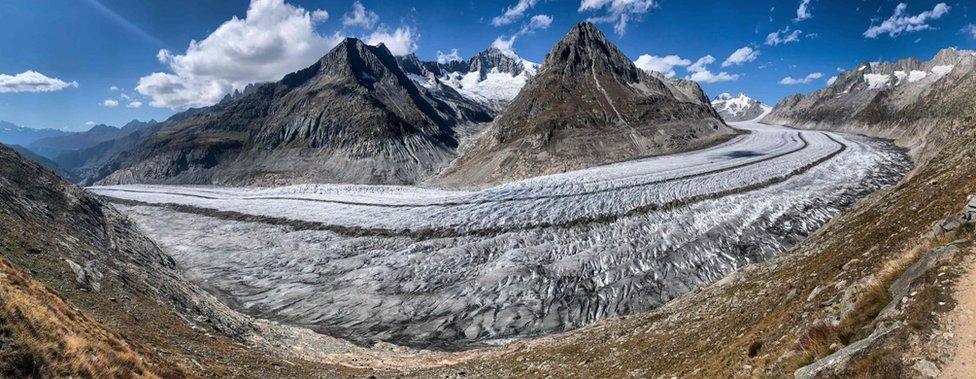
Climate change could cause the biggest glacier in the Alps, the Aletsch in Switzerland, to vanish by the end of the century
But the election campaign was about more than just a rise in support for green parties.
A record 40% of candidates for the National Council were women (as were more than a third of those standing for the second house, the chamber of states).
In June this year, hundreds of thousands of women across Switzerland took to the streets to call for equal pay and conditions, and an end to discrimination.
Socialist MP Flavia Wasserfallen told Imogen Foulkes in June why women were taking to the streets
- Published19 October 2019
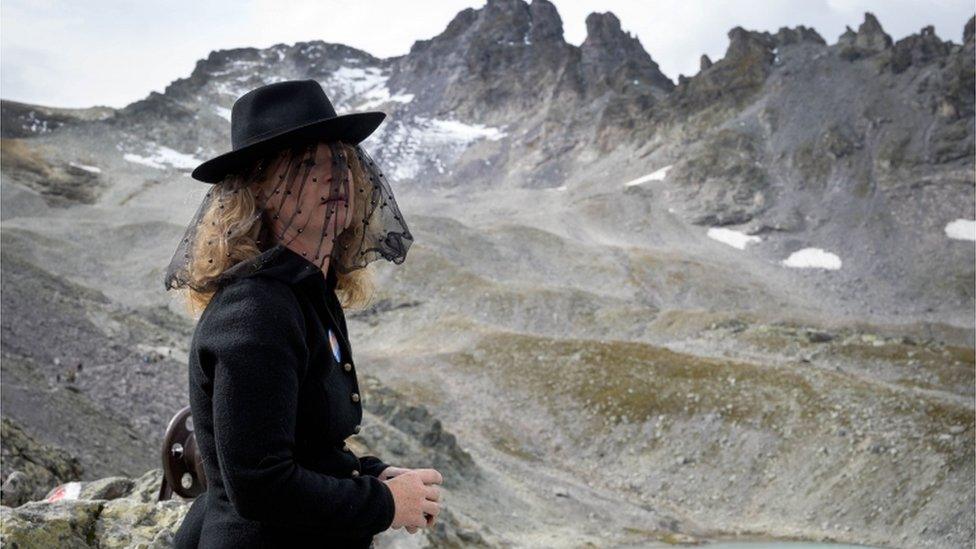
- Published23 September 2018
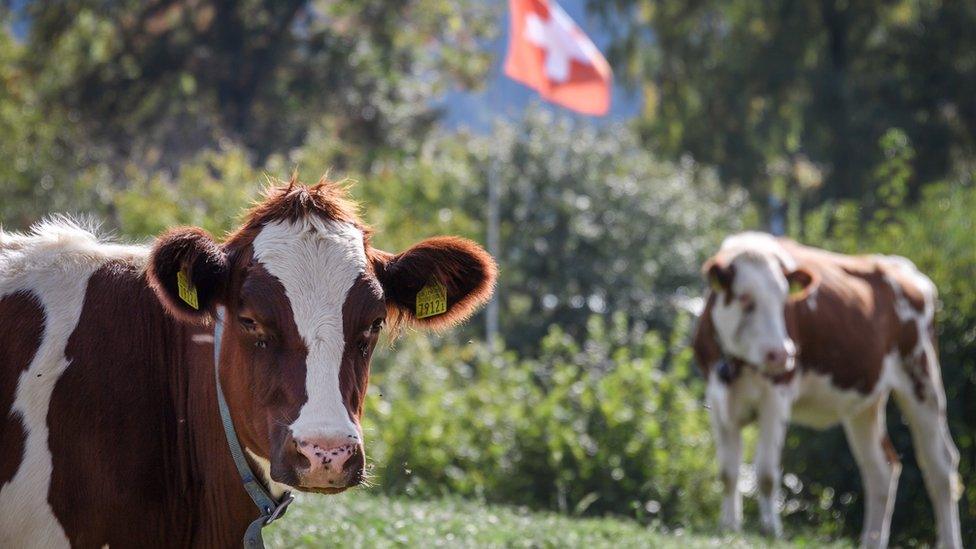
- Published21 May 2017
